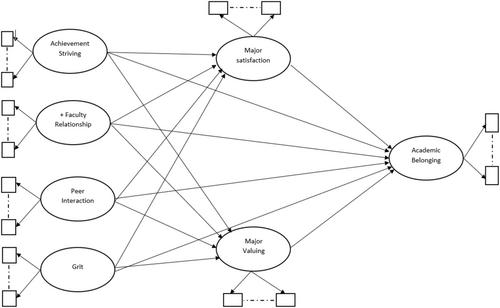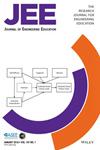Belonging in engineering: Exploring the predictive relevance of social interaction and individual factors on undergraduate students' belonging in engineering
Abstract
Background
Belonging in their academic discipline affects students' participation and retention in engineering. While prior studies have conceptualized belonging as a predictor of outcomes, this study examines belonging as an outcome that depends on interpersonal and intrapersonal variables.
Purpose
This quantitative study tested a conceptual model of academic belonging for undergraduate engineering students that hypothesized how intrapersonal and interpersonal variables predict belonging in engineering. The model proposed that engineering students' satisfaction with and valuing of their academic discipline mediate these predictors' effects on belonging.
Design/Methods
This study sampled undergraduate engineering students (n = 849) across six universities and used structural equation modeling to examine the direct and indirect effects of four exogenous variables (achievement striving, grit, peer interaction, faculty interaction) on one endogenous variable (academic belonging). The model included satisfaction with and valuing of their academic discipline as mediator variables.
Results
The direct effects of peer interaction, faculty interaction, as well as passion and perseverance (sub-constructs of grit) on academic belonging were significant. The direct effects of achievement striving on predicting academic belonging were not significant. Satisfaction mediated the effects of the predictors on students' sense of belonging in engineering.
Conclusions
Peer interaction was the most robust contributor to belonging, while faculty interaction and the value that students ascribe to their academic discipline predicted their sense of belonging in engineering. This work provides a novel model of belonging in engineering and its interpersonal and intrapersonal antecedents with educational, policy, and research implications to improve engineering students' belonging within their academic discipline.


 求助内容:
求助内容: 应助结果提醒方式:
应助结果提醒方式:


